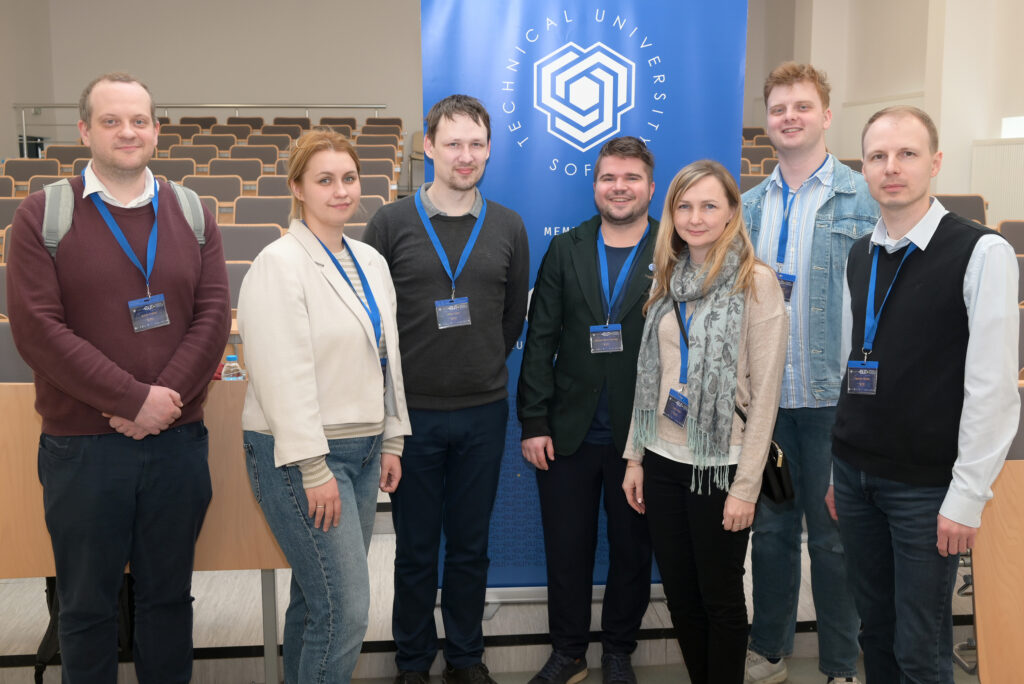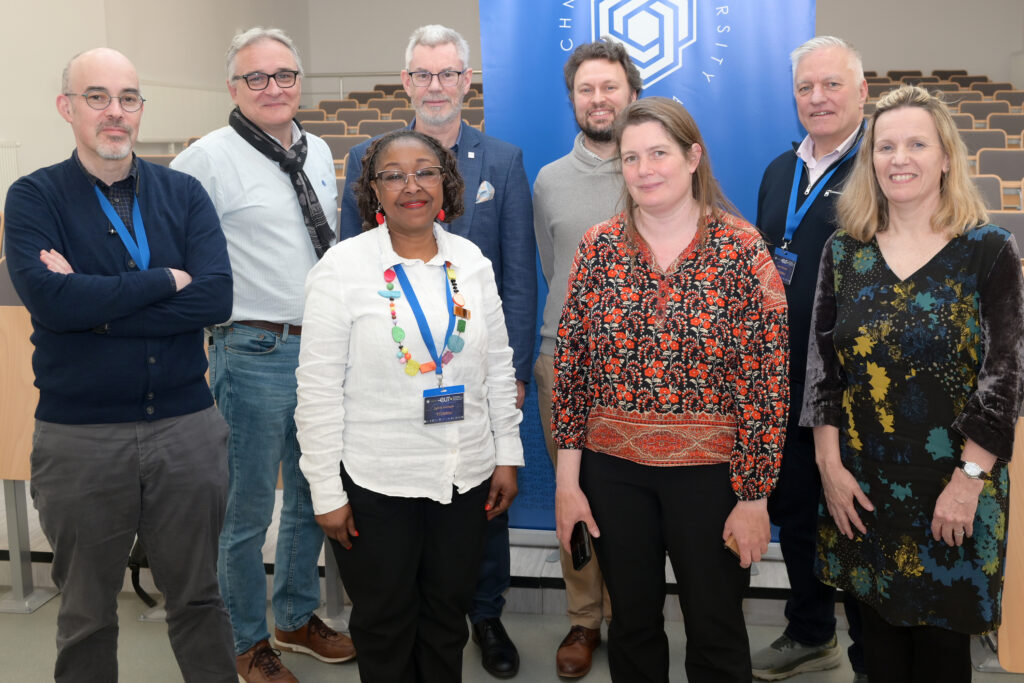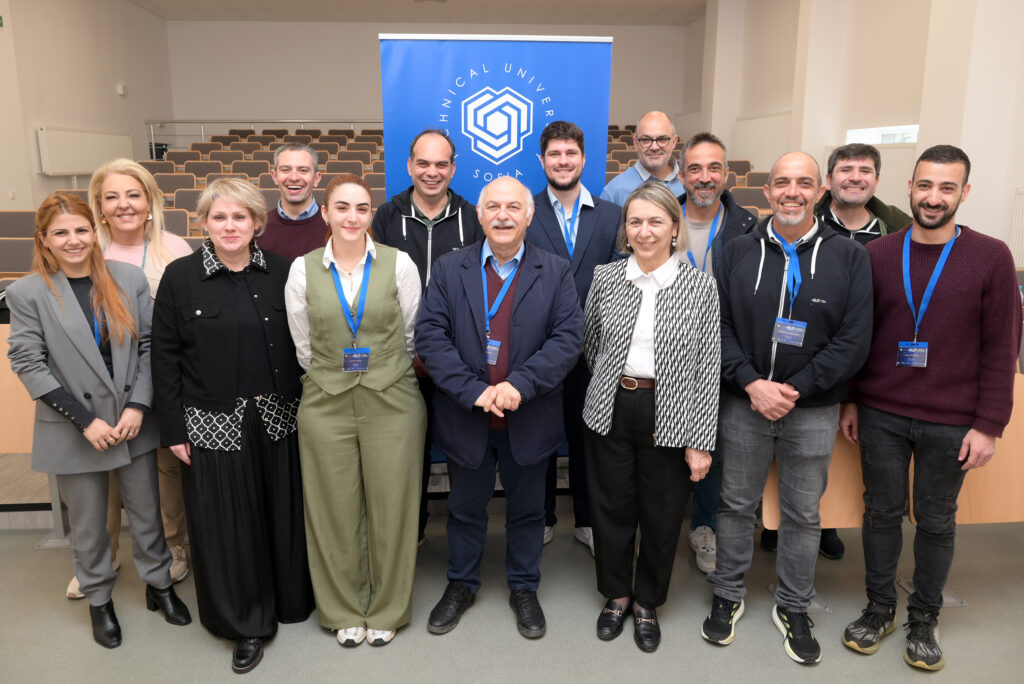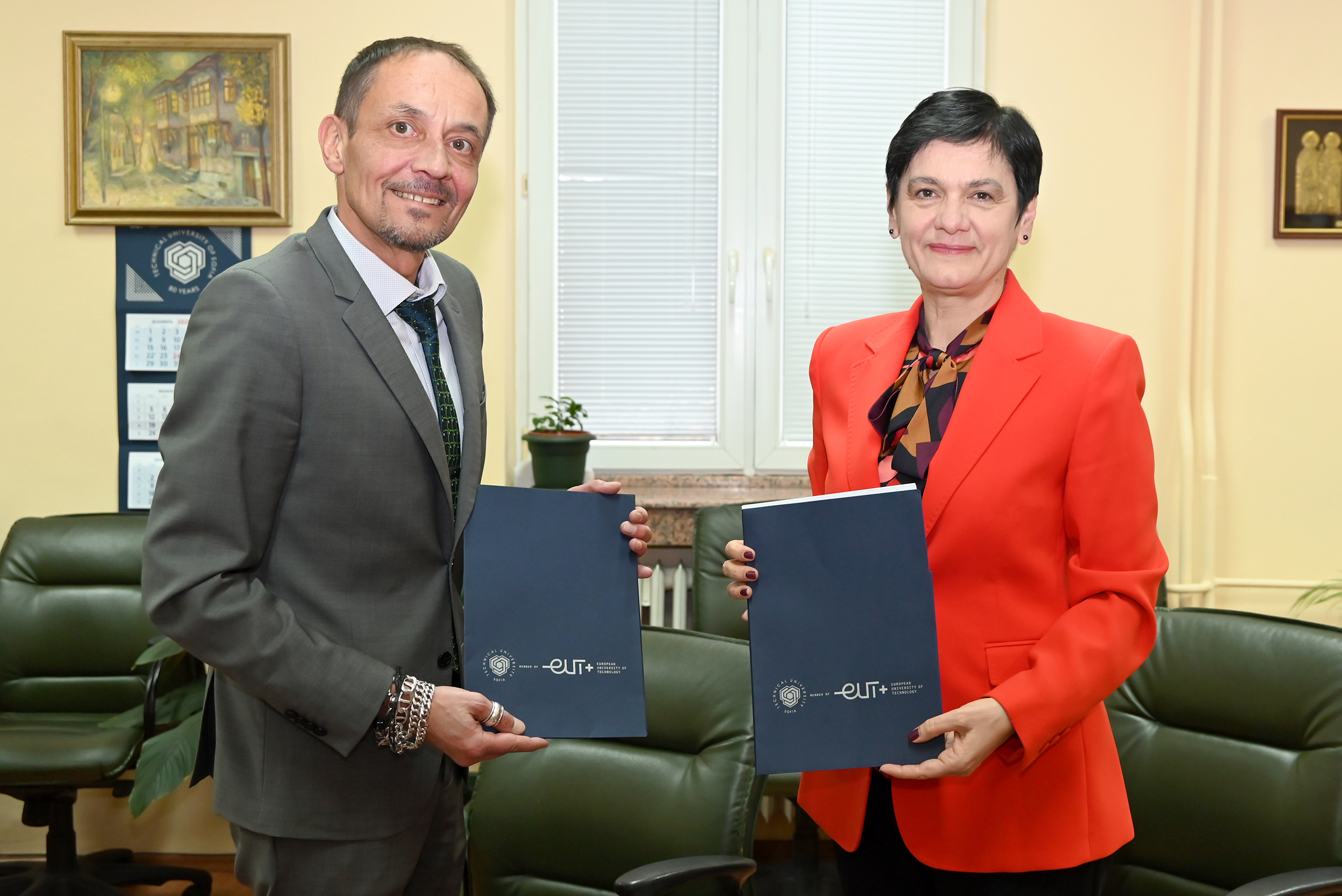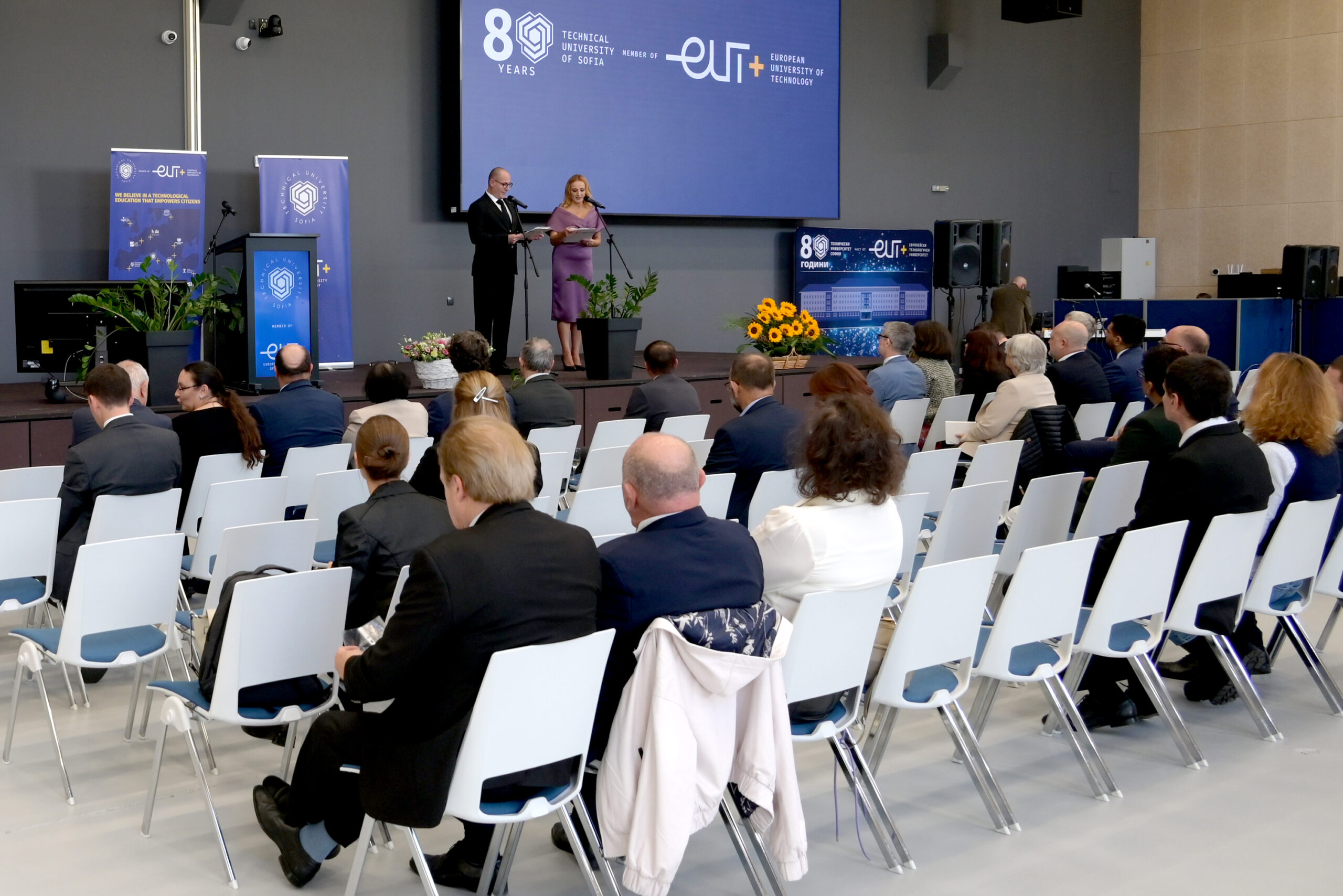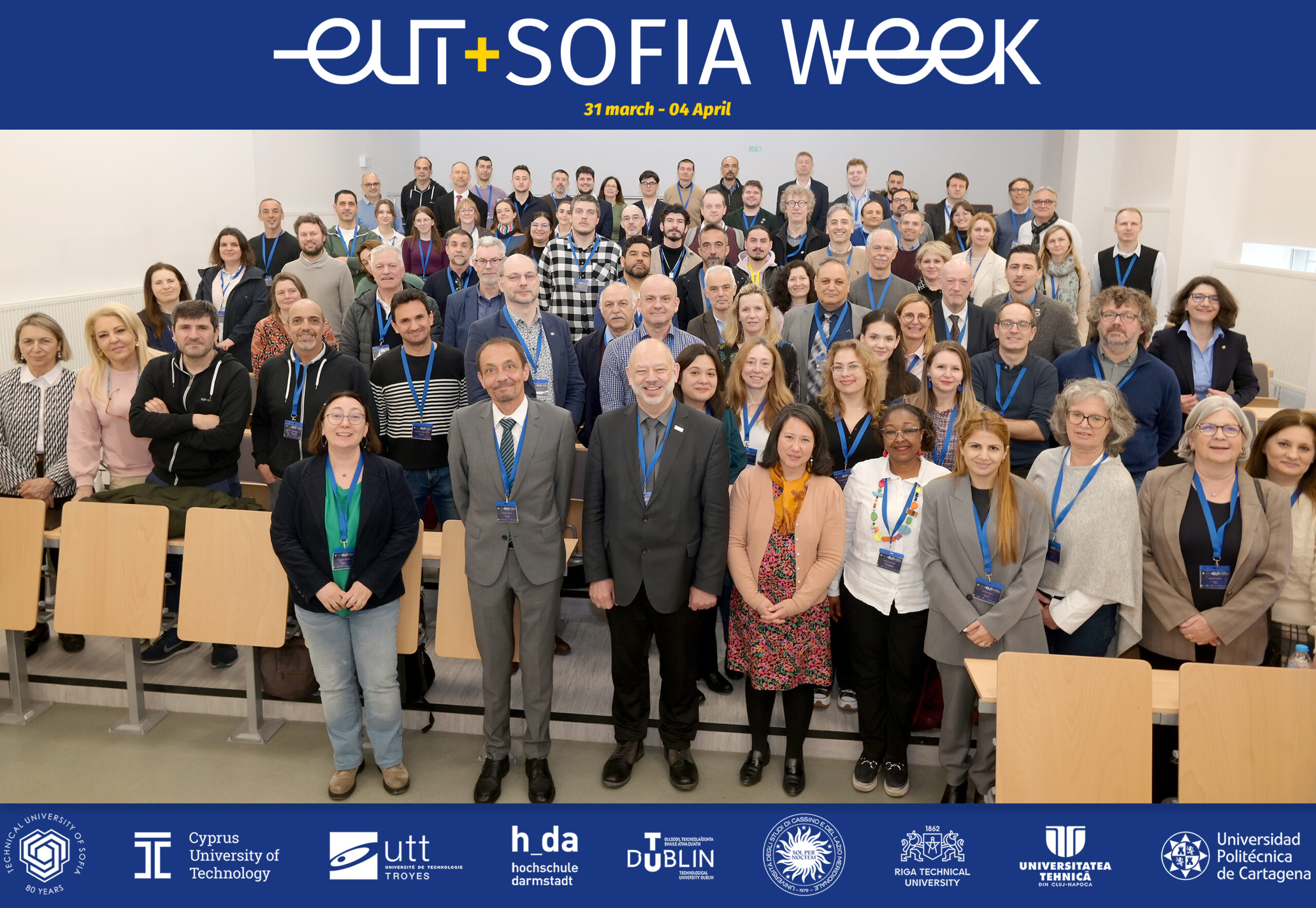
- About EUt+
- About TU-Sofia
- News
- Partners
- Cyprus University of Technology (CUT)
- Technical University of Cartagena (UPCT)
- Technological University Dublin (TU Dublin)
- Darmstadt University of Applied Sciences
- Riga Technical University (RTU)
- University of Technology of Troyes
- Technical University of Cluj-Napoca
- University of Cassino and Southern Lazio (UNICAS)
- Education
- Research
- Offices

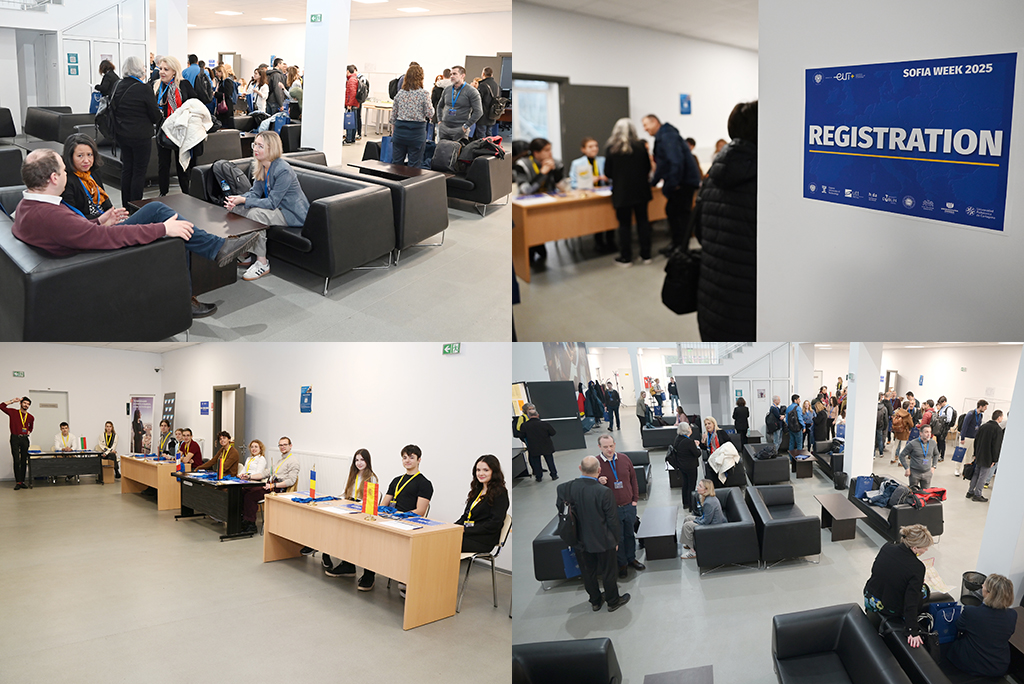
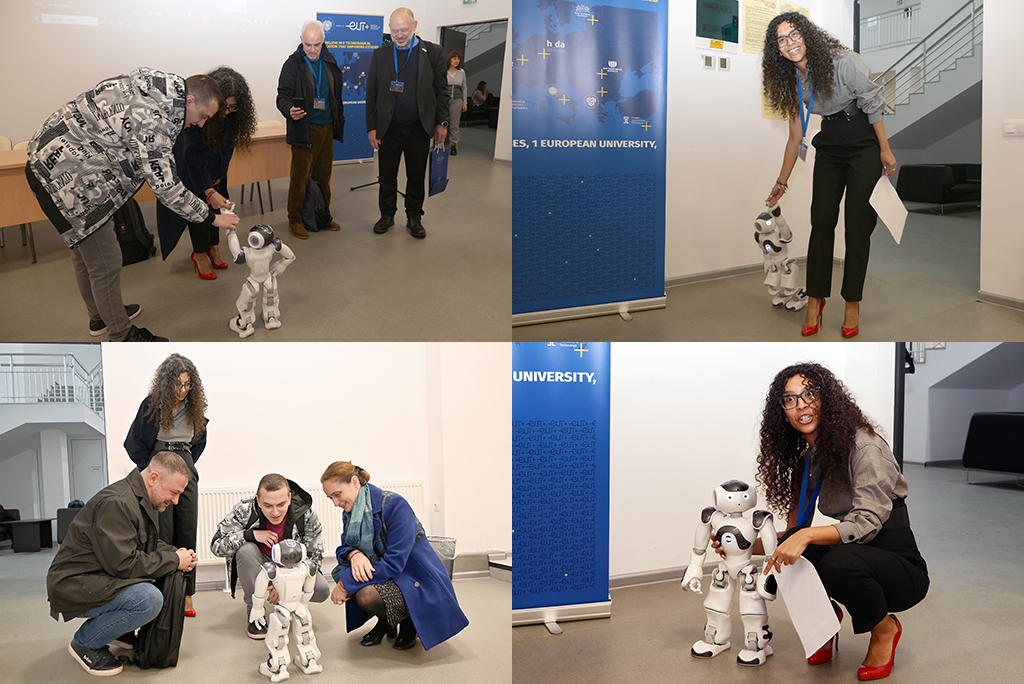
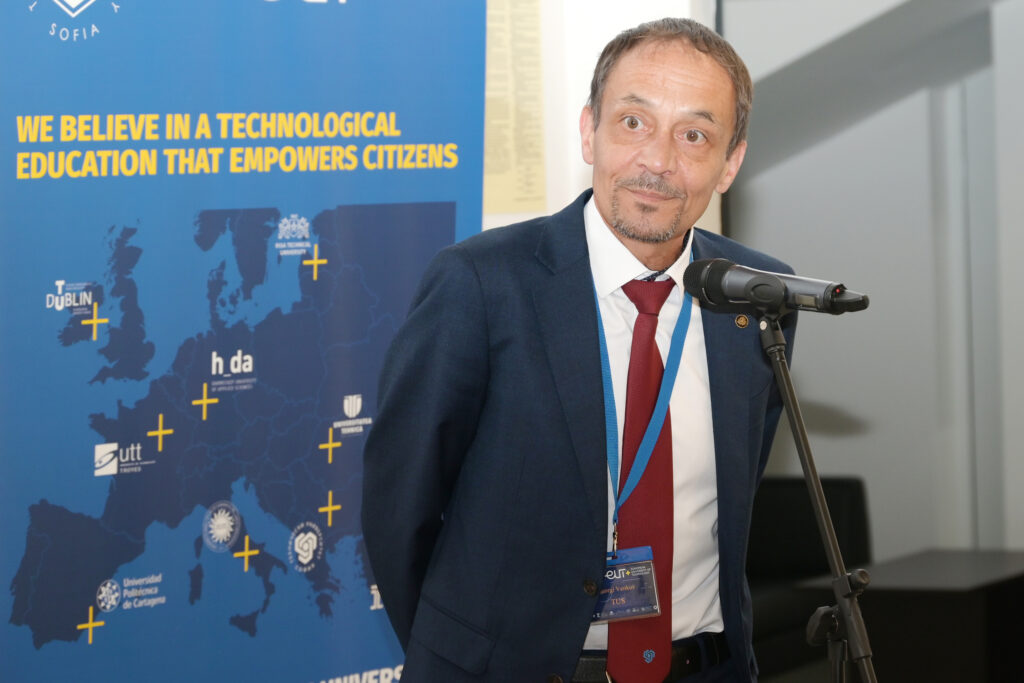
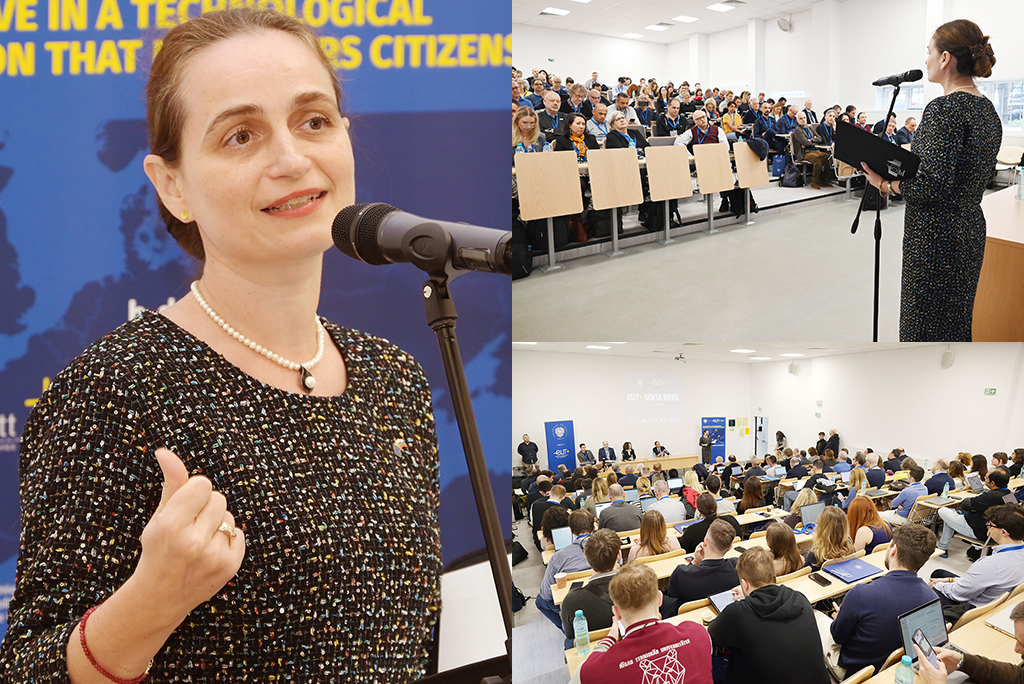 A distinguished guest at the opening session was the Head of the European Commission Representation in Bulgaria, Yordanka Chobanova. She highlighted the growing role of science in the European context, as well as the commitment of EUt+ to research and innovation in the technological future of the continent. Chobanova cited a Eurobarometer study, which found that 83% of Europeans only trust science-based policies, and 87% of people on the continent believe that renewable energy sources will improve the quality of life over the next 20 years.
A distinguished guest at the opening session was the Head of the European Commission Representation in Bulgaria, Yordanka Chobanova. She highlighted the growing role of science in the European context, as well as the commitment of EUt+ to research and innovation in the technological future of the continent. Chobanova cited a Eurobarometer study, which found that 83% of Europeans only trust science-based policies, and 87% of people on the continent believe that renewable energy sources will improve the quality of life over the next 20 years.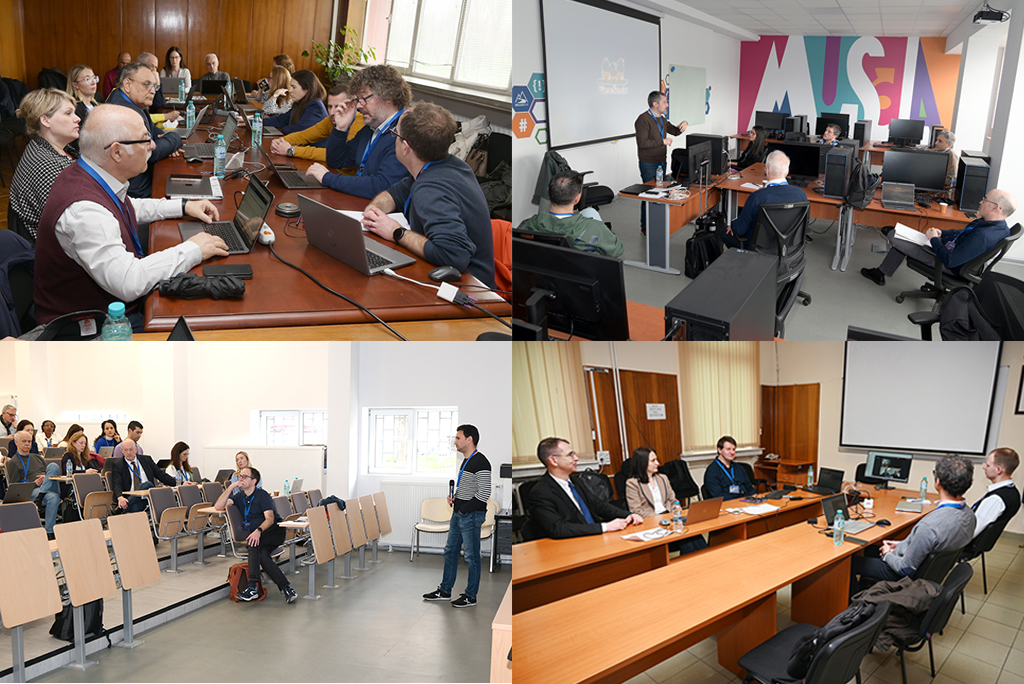
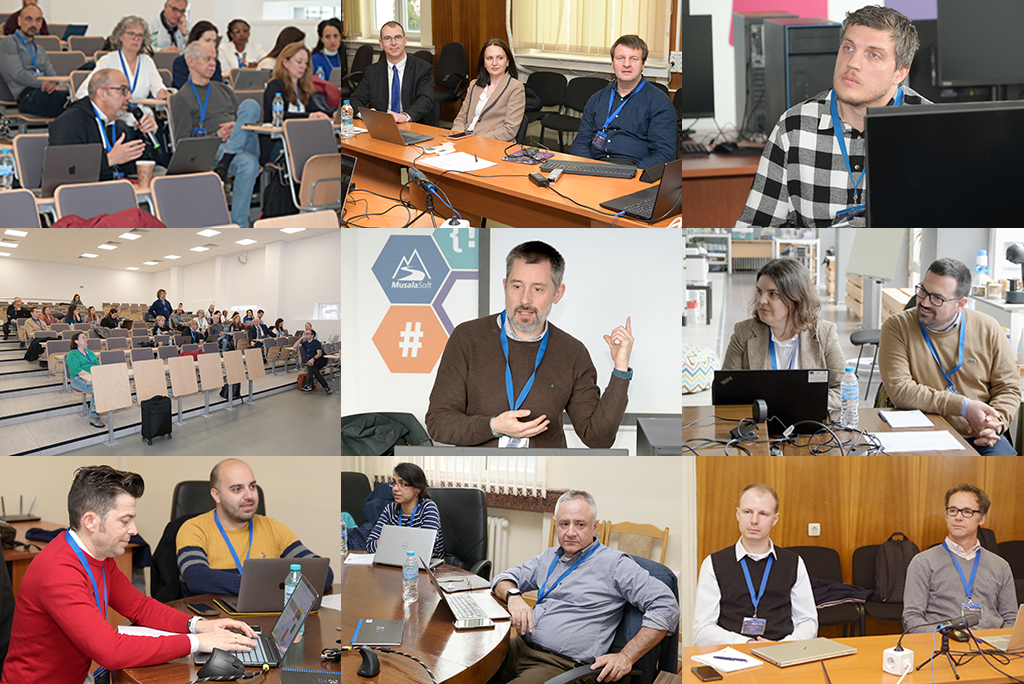
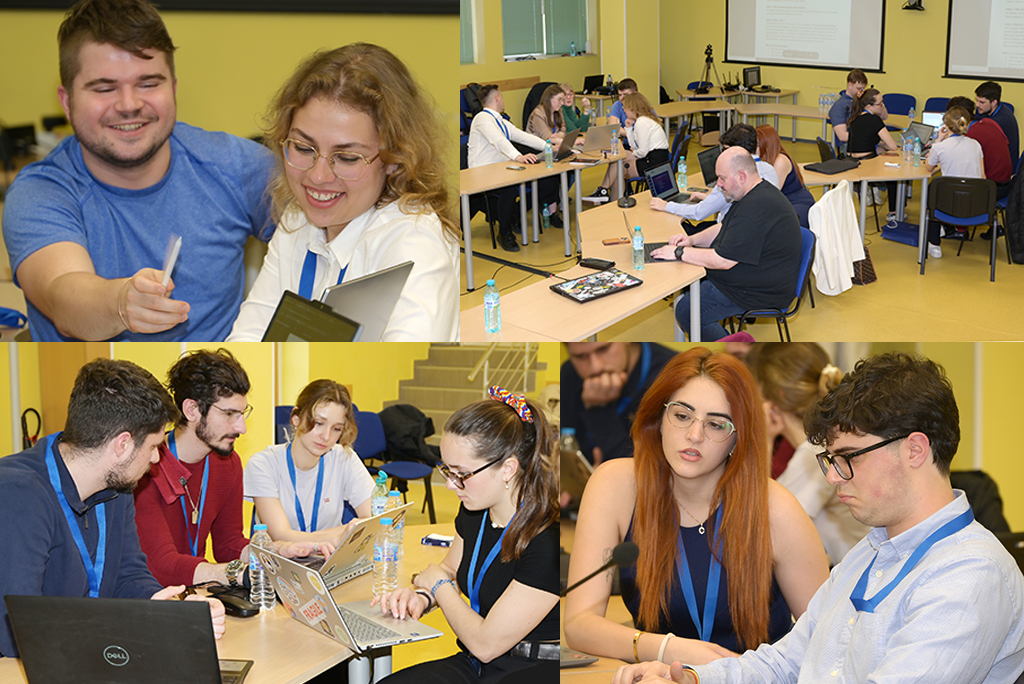
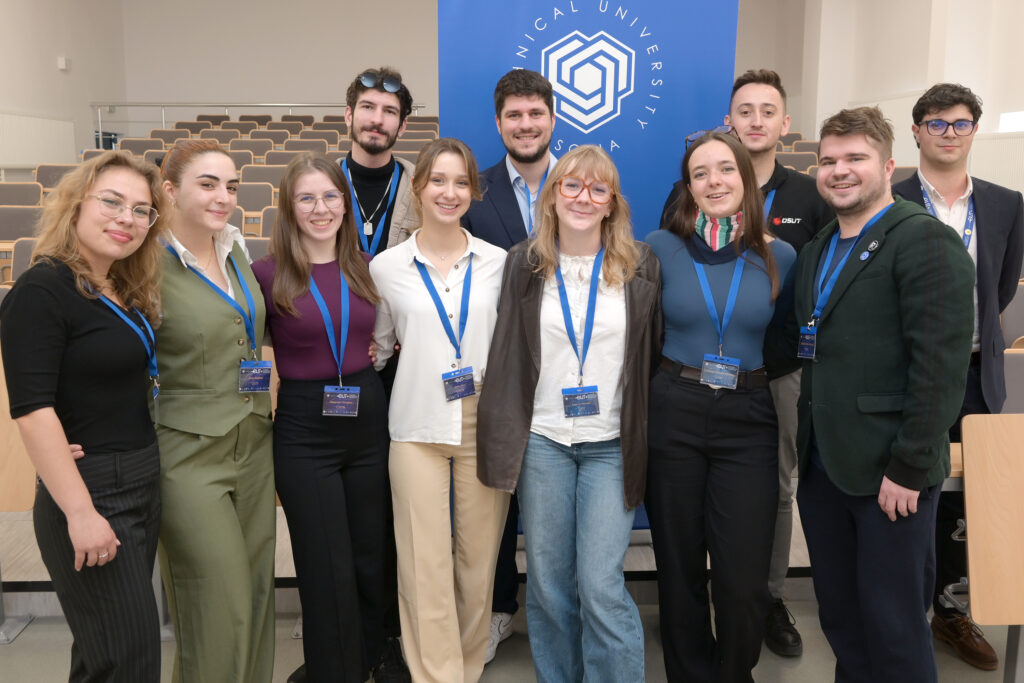
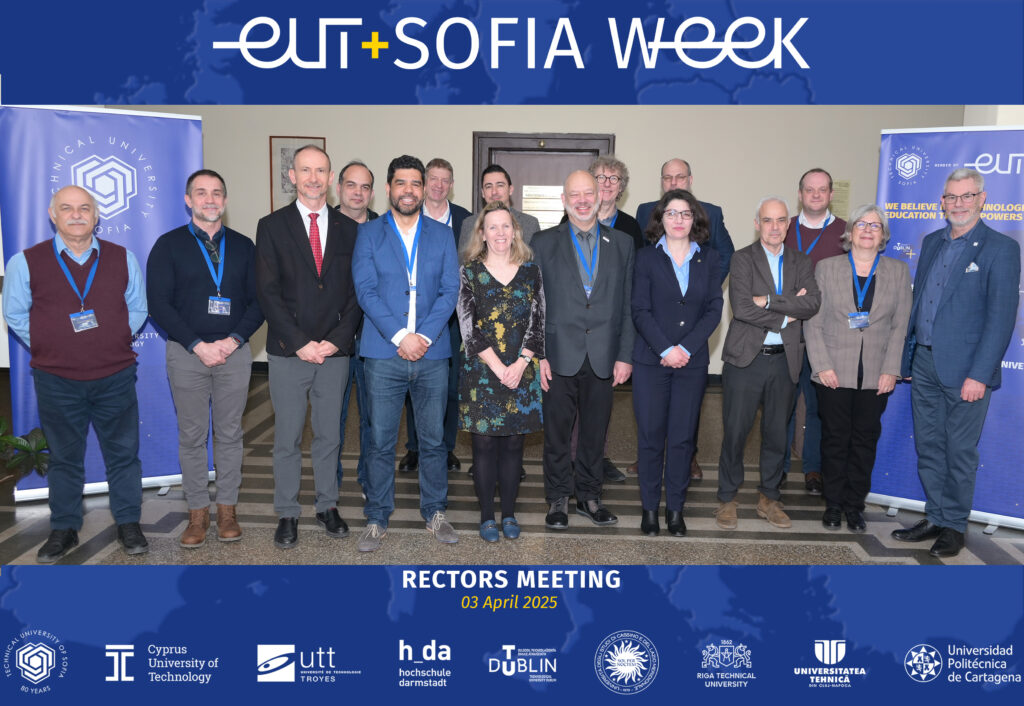
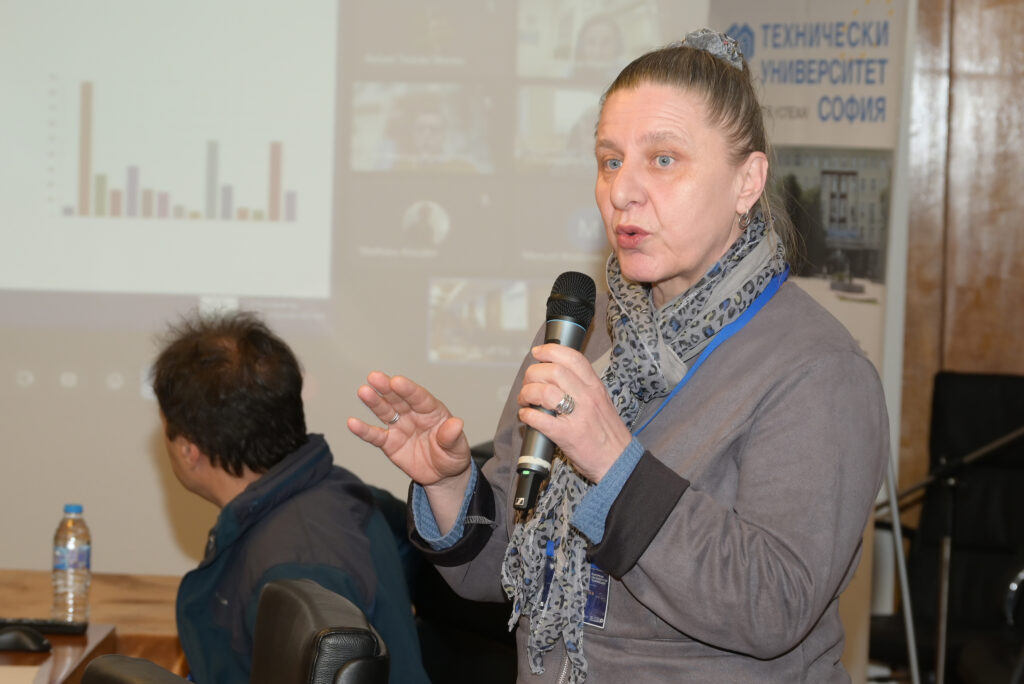 Senior Lecturer Vesela Frengova, Deputy Director of the Department of Foreign Languages and Applied Linguistics, presented interesting information about the traditional online language courses for staff and faculty from EUt+ partner universities. She reported that at the Technical University of Sofia, the most wanted courses were those for English, Spanish, German, and French, and less so for Bulgarian, Romanian, Latvian, and Greek.
Senior Lecturer Vesela Frengova, Deputy Director of the Department of Foreign Languages and Applied Linguistics, presented interesting information about the traditional online language courses for staff and faculty from EUt+ partner universities. She reported that at the Technical University of Sofia, the most wanted courses were those for English, Spanish, German, and French, and less so for Bulgarian, Romanian, Latvian, and Greek.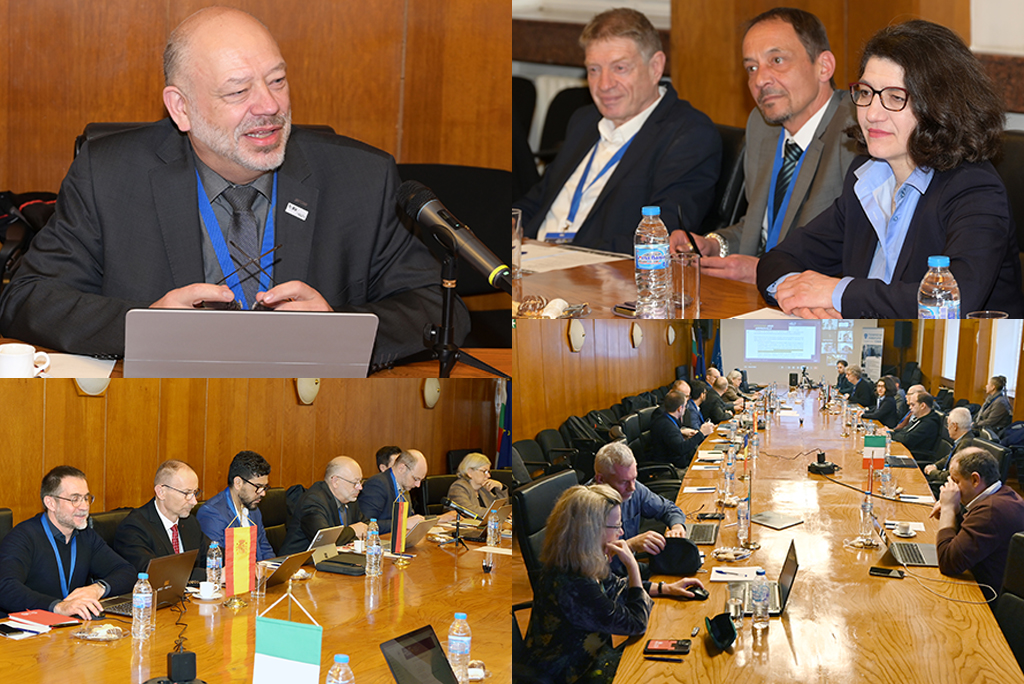 The Board of Rectors also decided on its next rotating chair. Germany currently holds the presidency to be followed by Cyprus, and then in 9 months – the Rector of the Technical University of Sofia will take over the rotating presidency. Among the topics discussed were: the annual report for the first year of the second phase of the project, European research institutes and projects, and the progress in the development and support of European alliances.
The Board of Rectors also decided on its next rotating chair. Germany currently holds the presidency to be followed by Cyprus, and then in 9 months – the Rector of the Technical University of Sofia will take over the rotating presidency. Among the topics discussed were: the annual report for the first year of the second phase of the project, European research institutes and projects, and the progress in the development and support of European alliances.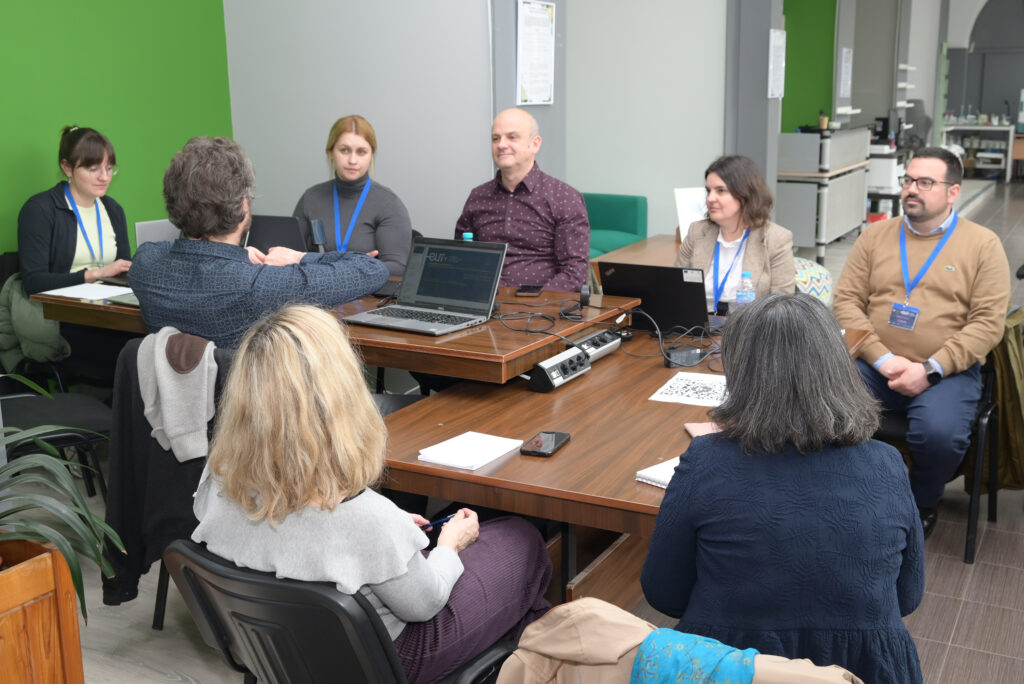 One of the upcoming short-term tasks is to organise a thematic event with specific topics by the end of the year, as reported by Maria Krusteva, Senior Expert for Sustainable Development. A key focus in the work of the Green Office group is the development of close partnerships with other working groups within EUt+. There is also a proposal to rename the Green Office to Sustainability Office, as the term “green office” imposes limitations and confines the activities solely to environmental topics, while the idea of sustainability is related to the ESG concept. A central theme in the activities and planned tasks of the Green Office structures at the universities within the Alliance is motivating students to be more active in initiatives related to sustainability, says Maria Krusteva. The Technical University of Sofia is one of the first in the Alliance with a Sustainable Development Strategy, sustainable policies on certain aspects of the university’s activities, a dedicated webpage, as well as a specially designed space with an atmosphere conducive to creativity and development.
One of the upcoming short-term tasks is to organise a thematic event with specific topics by the end of the year, as reported by Maria Krusteva, Senior Expert for Sustainable Development. A key focus in the work of the Green Office group is the development of close partnerships with other working groups within EUt+. There is also a proposal to rename the Green Office to Sustainability Office, as the term “green office” imposes limitations and confines the activities solely to environmental topics, while the idea of sustainability is related to the ESG concept. A central theme in the activities and planned tasks of the Green Office structures at the universities within the Alliance is motivating students to be more active in initiatives related to sustainability, says Maria Krusteva. The Technical University of Sofia is one of the first in the Alliance with a Sustainable Development Strategy, sustainable policies on certain aspects of the university’s activities, a dedicated webpage, as well as a specially designed space with an atmosphere conducive to creativity and development.